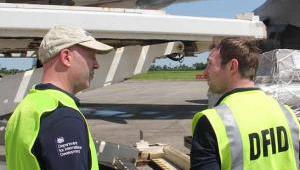We British love Who Do you Think You Are? the television programme exploring family histories. I tried to explore mine. The Black Country Edwards family tree ran out with my great great grandfather when all I could find was that he was born in Wales – there are lots of Edwards in Wales! But the common characteristic was that all my family were miners. I was the first one to join a profession.
My tale of social mobility is replicated hundreds of thousands of times around the world. The rise of the accounting profession correlates with economic growth and rising living standards; hence CIPFA’s interest in promoting the professionalisation of public financial management (PFM) in the developing world.
CIPFA will shortly be issuing a paper and four case studies on this with the support of the Department for International Development. We will also be addressing the issue at our international conference on PFM in London on 15-17 March.
The four countries we examined were: Lesotho, Mozambique, Nigeria and Tanzania. All four are former colonies. They are at different stages in their development of professionalisation, with Mozambique perhaps considered towards one end of the spectrum and Lesotho towards the other.
It is interesting to compare the performance of these countries with the rising economic stars of China and India. In both these countries there has been sustained government support for the development of accounting as a complement to economic development initiatives.
It was not always like that. For example, accounting in China was not previously considered a prestigious occupation. Accountants were seen as ‘greedy and little better than thieves – a shameful occupation’. During the past 20 years however, society and values in China have changed dramatically, and accountancy has achieved an elevated occupational status.
Professionalisation is in many ways a package deal, including education and training as well as transformation of the supporting behaviours and infrastructure. There is no one-size approach. But there are clear benefits to government of moving along a path to ensure that all public financial managers have a level of training.
At a personal level I have seen at first hand the impact professionalisation can make on people in Lesotho. I captured some of the students’ enthusiasm in videos that can be seen on our website.
What I particularly loved was the 2010 prize-winner who was so committed to her study that she completed her exams while heavily pregnant. Indeed, when her child was born five days after the exams her friends and family called her baby Cipfa! Perhaps we can learn lessons in commitment from the students in Lesotho.
Alan Edwards is CIPFA’s international director











